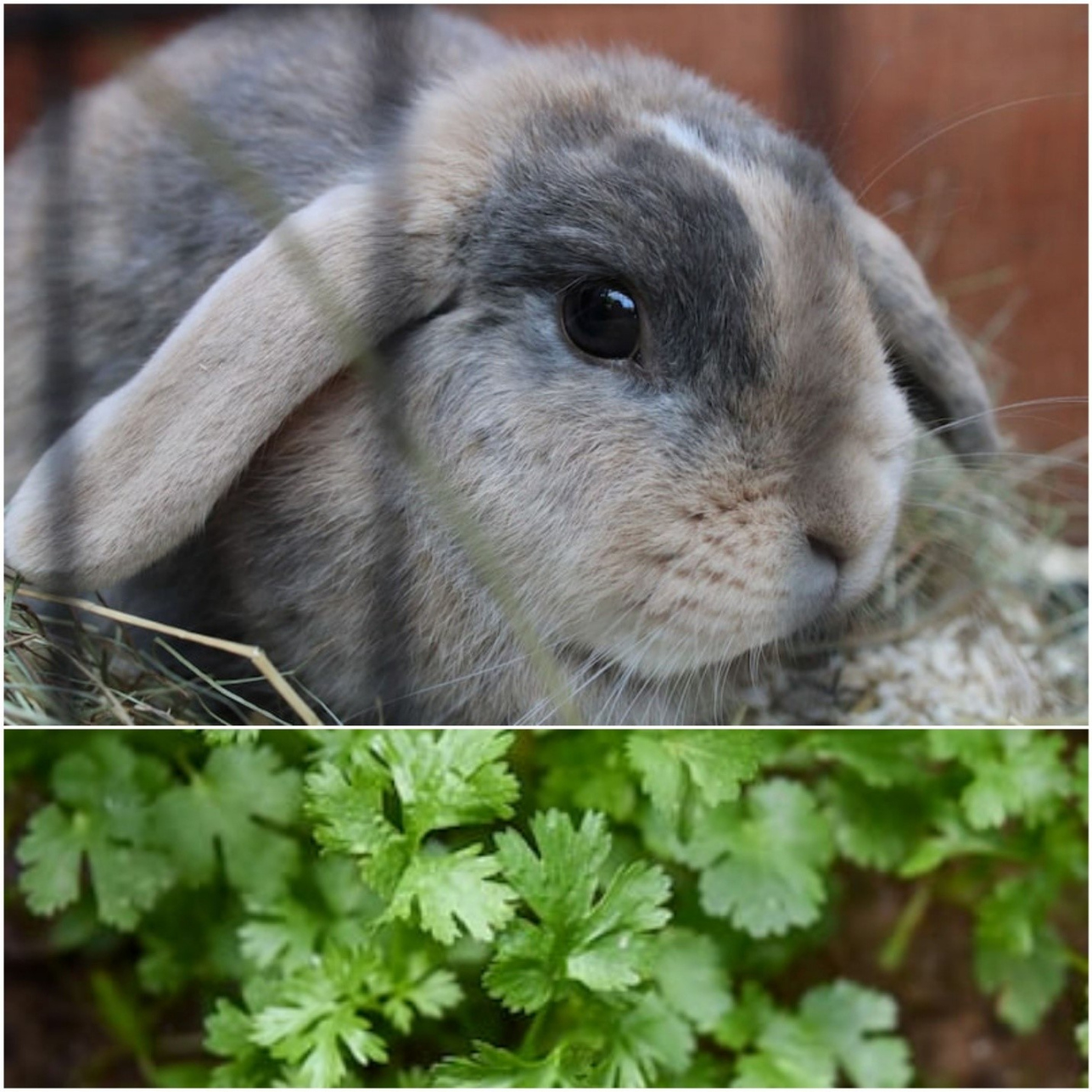Can Rabbits Have Cilantro?
Rabbits are herbivorous animals and have a diet primarily consisting of hay, vegetables, and fruits. While hay should make up the majority of their diet, it is important to introduce variety to ensure they receive all the necessary nutrients. Cilantro, also known as coriander leaves, is a popular herb used in various dishes around the world. But can rabbits have cilantro? Let’s explore.

Benefits of Cilantro for Rabbits
Cilantro is packed with vitamins and minerals that can be beneficial for rabbits when offered in moderation. Here are some of the potential benefits:
- Cilantro is a good source of vitamin C, which is essential for maintaining a healthy immune system in rabbits.
- In addition to vitamin C, cilantro also contains other vitamins such as vitamin A and vitamin K, which contribute to overall rabbit health.
- Cilantro is rich in antioxidants that help combat free radicals and reduce the risk of certain diseases in rabbits.
- The herb also contains beneficial minerals like potassium and calcium, which play a vital role in maintaining proper bodily functions in rabbits.
Considerations for Feeding Cilantro to Rabbits
While cilantro can be a healthy addition to a rabbit’s diet, there are a few considerations to keep in mind:
- Cilantro should only be given as a treat or occasional addition to their regular diet.
- Introduce cilantro gradually to ensure your rabbit tolerates it well, as some rabbits may have sensitive stomachs.
- Wash the cilantro thoroughly before offering it to remove any pesticides or toxins that may be present.
- Offer cilantro in small portions to avoid overfeeding, which can lead to digestive issues.
- Monitor your rabbit for any adverse reactions, such as diarrhea or changes in behavior, and consult a veterinarian if necessary.
How to Feed Cilantro to Rabbits
Here’s a simple step-by-step guide on how to offer cilantro to your rabbits:
- Start by selecting fresh cilantro from a trusted source.
- Thoroughly wash the cilantro leaves under running water to remove any dirt or chemicals.
- Remove any wilted or discolored leaves from the bunch.
- Chop the cilantro into small pieces to make it easier for your rabbit to eat.
- Offer a small portion of cilantro to your rabbit and observe their response.
- If your rabbit shows no adverse reactions, you can continue offering cilantro as an occasional treat.
Frequently Asked Questions (FAQs)
1. Can rabbits eat cilantro every day?
No, rabbits should not eat cilantro every day. Cilantro should only be offered as a treat or as part of a varied diet to ensure they receive all the necessary nutrients from other hay, vegetables, and fruits.
2. How much cilantro can I give my rabbit?
Cilantro should be given in moderation. Start with a small portion and observe how your rabbit reacts. If they tolerate it well, you can continue offering small amounts, but avoid overfeeding as it can lead to digestive issues.
3. Can cilantro be harmful to rabbits?
Cilantro is generally safe for rabbits when given in appropriate quantities. However, some rabbits may have sensitive stomachs, and excessive consumption can lead to digestive upset. It is always recommended to monitor your rabbit’s response to any new food and consult a veterinarian if you have concerns.
4. Are there any alternatives to cilantro for rabbits?
Yes, if your rabbit does not seem to enjoy cilantro or if you want to offer more variety, there are several rabbit-safe herbs and greens you can try, such as parsley, basil, dill, or mint. Remember to introduce new foods gradually and monitor your rabbit’s response.
In conclusion, cilantro can be a healthy addition to a rabbit’s diet when offered in moderation. It provides essential vitamins and minerals that contribute to overall rabbit health. However, it should only be given as a treat or occasional addition to their regular diet. Always monitor your rabbit’s response to any new food and consult a veterinarian if you have any concerns or notice any adverse reactions.
Related Articles…
Copyright Notice:
All images on this website are obtained from the internet and remain copyrighted to their original owners. If you hold copyright to any image and want it taken down, please reach us.
